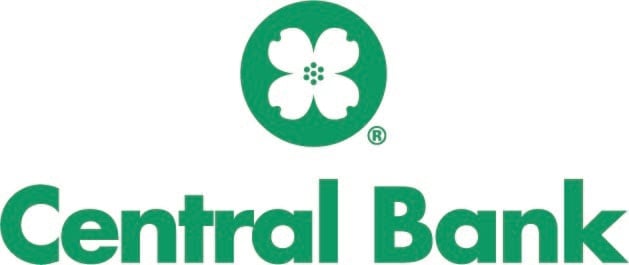Compare Jumbo Mortgage Rates | Sunday, February 8, 2026
Rates are current as of February 8, 2026 12:42 AM EST
APR 5.99%
0.03% 1wAPR 5.44%
-0.03% 1wAPR 6.37%
0.01% 1wShow details
The Nerdy headline
Tomo’s online rates comparison tool is among the best we’ve seen for shopping rates — and both their rates and fees are competitive. While they don’t offer refinance or home equity options, the solid lineup of purchase loans could be a good fit for a wide range of home buyers, including those with credit challenges.
NerdWallet rating
5.0
- Comprehensive online rates comparison tool makes it easy to customize sample rates.
- Mortgage rates are on the low side, according to the latest federal data.
- Offers financing options for borrowers with lower credit and those without Social Security numbers.
- No refinance or home equity options.
- Loans not available in all states.
Show details
The Nerdy headline
Simplist is an online marketplace of mortgage lenders; human guidance is optional. You’ll make payments to a loan servicer, not to Simplist. Loans are not available in every state.
Home loans overall
NerdWallet rating
4.5
- Loan origination process can be completed online.
- Offers government-backed FHA and VA loans.
- Offers module that compares mortgage rates among other lenders.
- Offers loans in many states and Washington, D.C., but not nationwide.
- Does not offer home equity loans or lines of credit.
Show details
The Nerdy headline
First Federal Bank stands out for its exceptionally low interest rates and its emphasis on government loans. Most likely to appeal to borrowers shopping for low rates and fees.
Home loans overall
NerdWallet rating5.0
- Strong experience in FHA and VA lending.
- Average mortgage rates are on the low side, according to the latest federal data.
- Minimum credit score requirement of 580 for some loans, which is lower than some competitors.
- No mobile app.
- Home equity lending is not a priority.
- Does not offer renovation loans, but does offer construction loans.
Show details
The Nerdy headline
Sage Home Loans stands out for speed and convenience, though it lacks a mobile app and doesn’t serve New York borrowers.
Home loans overall
NerdWallet rating
4.5
- Sample rates are easy to browse online.
- Quick, convenient pre-qualification process.
- Average time to close is just under 20 days, faster than industry standard.
- Home loans aren’t available in New York.
- No mobile app or online chat, despite focus on mortgage tech.
- Online pre-qualification requires sharing contact info.

NMLS#1880338
APR
6.00%
APR
6.00%
Interest rate
6.00%
Est. mo. payment
$4,077/mo
Total fees
$0
Next Door Lending is a wholly-owned subsidiary of NerdWallet
Show details
The Nerdy headline
Next Door Lending, a mortgage broker, offers expert assistance shopping for and closing a loan, as well as specialty loans at competitive rates. Mortgages are not available in every state.
- Offers a variety of loan types, including first-time buyer programs and loans for self-employed borrowers.
- Real-time rate quotes available while working with a broker.
- Responsive customer service.
- Competitive pricing often available, especially for non-traditional borrowers.
- Does not publish interest rates online.
- No mortgage mobile app.
- Loans are not available in every state.
Show details
The Nerdy headline
Midwest-rooted Central Bank offers an online application, which you can track via mobile app. But you’ll have to contact the bank for mortgage rates.
Home loans overall
NerdWallet rating
4.0
- Among the best when it comes to online convenience.
- Offers a full selection of mortgage types and products, including jumbo, home equity, and government loans.
- Claims to offer preapproval within 24 hours of loan application.
- You'll have to complete a loan application to see mortgage interest rates.
- Bank branch locations limited to the Midwest.
- Does not offer home equity lines of credit.
Show details
The Nerdy headline
New American Funding offers a large menu of loan products, as well as programs like first-time home buyer assistance, but personalized mortgage rates aren't available on its website.
Home loans overall
NerdWallet rating4.5
- Offers a wide variety of purchase and refinance mortgages, as well as unique buyer assistance programs.
- Its home equity line of credit can be used for a primary residence or second home.
- Average origination fees are on the high side, according to the latest federal data.
- Personalized mortgage rates are not available on the website without providing contact information.
Show details
The Nerdy headline
Home loans overall
NerdWallet rating
4.5
- Offers a variety of mortgage options, including jumbo loans, and FHA and VA loans.
- Offers home equity loans and lines of credit.
- Displays customized rates, with fee estimates, without requiring contact information.
- Doesn’t offer mortgages in all 50 states.
- Home renovation loans are not available.
See more options
About these rates: The lenders whose rates appear on this table are NerdWallet's advertising partners. NerdWallet strives to keep its information accurate and up to date. This information may be different than what you see when you visit a lender's site. The terms advertised here are not offers and do not bind any lender. The rates shown here are retrieved via the Mortech rate engine and are subject to change. These rates do not include taxes, fees, and insurance. Your actual rate and loan terms will be determined by the partner's assessment of your creditworthiness and other factors. Any potential savings figures are estimates based on the information provided by you and our advertising partners.
Explore historical mortgage rate trends
See how rates have changed over time to understand past patterns and economic fluctuations

Historical timeline
Loan purpose
Loan type
National average 5.99%
Today's average mortgage rates
| Product | Interest rate | APR |
|---|---|---|
| 30-year Fixed | 5.98% | 5.99% |
| 30-year Fixed FHA | 6.12% | 6.86% |
| 30-year Fixed VA | 5.50% | 5.67% |
| 20-year Fixed | 5.96% | 5.97% |
| 15-year Fixed | 5.42% | 5.44% |
| 10-year Fixed | 5.57% | 5.58% |
| 3-year ARM | 8.19% | 7.46% |
| 5-year ARM | 6.03% | 6.37% |
| 7-year ARM | 5.99% | 6.29% |
| 10-year ARM | 5.98% | 5.99% |
Accurate as of 02/07/2026.
Data source: ©Zillow, Inc. 2025. Use is subject to the Terms of Use
Today's mortgage rates | Sunday, February 8, 2026
What Is a Jumbo Mortgage? Limits, Rates and How to Qualify
Learn what qualifies as a jumbo mortgage, including current loan limits, and when one may be the right choice for you.



Taylor Getler
Jeanette Margle
What is a jumbo mortgage?
Jumbo loan requirements
- Credit score of at least 700, though individual lenders may require this to be higher.
- Debt-to-income ratio (DTI) no higher than 45%, meaning that your debts (including housing costs) make up no more than 45% of your income. Some lenders have stricter requirements. You’re more likely to get better rates and terms if you keep your DTI below 36%.
- Down payment of 10% or more. This is set by individual lenders, and some may require as much as 20%.
- Cash reserves to cover several months of mortgage payments, up to one full year.
How to find jumbo mortgage rates today
Jumbo mortgage rates vary by lender
Should you consider a jumbo mortgage?
Jumbo loan pros and cons
- Jumbo loans provide a way to finance homes that exceed the limit imposed on conventional loans.
- Interest rates are often competitive with — and can even be lower than — conventional rates.
- Jumbo loans have stricter qualification requirements.
- They’re not offered by all lenders.
How to find a jumbo loan lender
Learn more about jumbo mortgages:
Frequently asked questions
Are jumbo loan rates higher?
Jumbo loans don’t necessarily have higher rates than conventional loans — in fact, they can be lower. Jumbo loans have much stricter qualification standards, meaning that these borrowers, with their high credit scores and substantial cash reserves, are a safer bet for lenders.Can you put down 10% on a jumbo loan?
A 10% down payment is often a minimum requirement for getting a jumbo loan. However, this varies by lender, and some will want a higher amount (as much as 20% in some cases). This can be affected by your borrower profile, including your credit score, debt-to-income ratio and cash reserves.
More mortgage tools and resources
Latest mortgage news and analysis
View rates by loan type or state
Get even more specific with rates personalized to your situation







